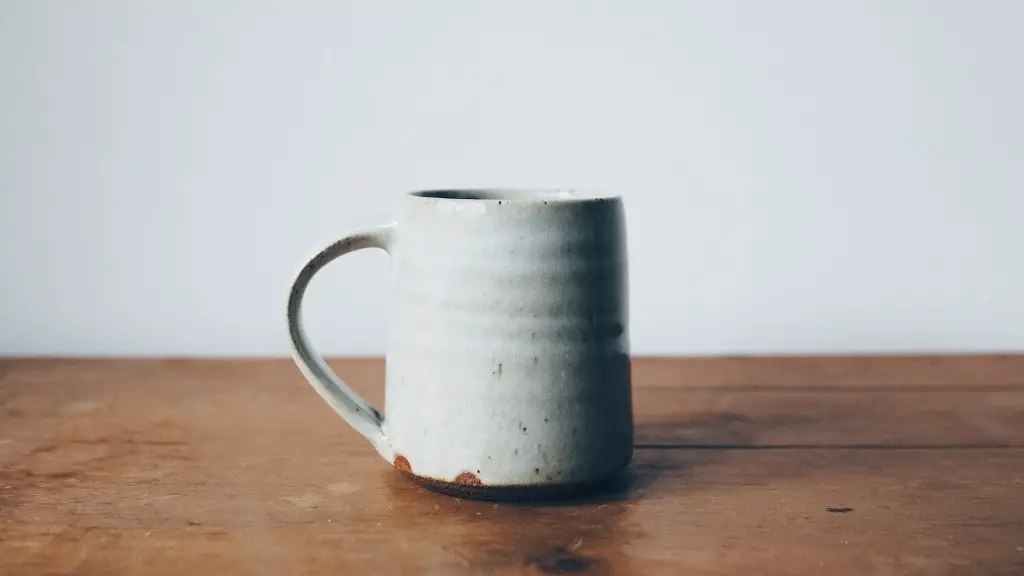Health Implications Of Drinking Coffee Everyday
There is no definitive answer to the question of whether it is okay to drink black coffee everyday. On the one hand, coffee consumption is associated with a range of both positive and negative effects on health. On the other hand, it is up to the individual to decide how much coffee they want to drink and what kind of coffee they want to drink. Depending on their lifestyle and health status, some people may be more likely to experience adverse reactions from consuming more coffee.
Recent studies have suggested that consuming up to 4 cups of coffee a day may reduce the risk of developing certain chronic diseases, including obesity, diabetes, heart disease and certain types of cancer. It is thought that the antioxidant properties of coffee may be responsible for the potential health benefits.
However, it is important to note that the potential positive health effects of coffee are only seen with moderate consumption, and that drinking excessive amounts of coffee can have adverse effects on health. For example, drinking more than 5 cups of coffee a day can increase the risk of heart palpitations, anxiety, insomnia, and high blood pressure. Caffeine overload can also result in irritability, nervousness and restlessness.
In addition, drinking too much coffee can cause dehydration. Dehydration can lead to headaches and lightheadedness, and can also impair physical performance and mental performance. As a result, it is important to drink plenty of water alongside coffee to counter the dehydrating effects.
For those who enjoy drinking coffee, there are a range of ways to reduce the potential health risks associated with drinking too much coffee. Caffeine-free or decaffeinated coffee can be an effective alternative for those who need to limit their daily coffee intake, as these varieties have a much lower caffeine content. There are also alternative sources of caffeine, such as tea or energy drinks, which can provide some of the positive effects of caffeine without the associated risks.
For pregnant women, drinking coffee is not recommended. Pregnant women should limit their intake to no more than 200 milligrams of caffeine per day. It is best to avoid caffeinated drinks altogether, as high levels of caffeine can increase the risk of miscarriage and low birth weight.
Ultimately, it is up to the individual to decide whether drinking black coffee every day is right for them. Moderate coffee consumption may have some health benefits, but it is important to pay attention to how much coffee is being consumed and to stay hydrated. Those with existing health conditions should consult their doctor before making any dietary changes.
Environmental Costs Of Drinking Coffee Everyday
Drinking black coffee every day can have an impact on the environment, as the manufacture and disposal of disposable coffee cups creates a lot of waste. It is estimated that 500 billion disposable cups are sent to landfill each year. As these cups are usually made of paper, plastic, and foil, they cannot be recycled and can take up to 30 years to biodegrade.
In addition, the production of coffee itself can cause environmental damage. Coffee cultivation can lead to deforestation and adverse impacts on biodiversity, as large swathes of land are cleared for the production of coffee beans. Intensive farming practices can also lead to soil erosion, water shortages, and water pollution.
Fortunately, there are ways to reduce the environmental impact of drinking coffee. Buying fairtrade, shade-grown coffee can help to minimise the damage caused by monoculture farming. Buying locally grown coffee can also reduce greenhouse gas emissions associated with transport.
Individuals can also reduce their environmental footprint by avoiding disposable cups. Reusable mugs and cups can be taken with you when buying coffee and help to reduce the amount of waste produced. Coffee drinkers can also choose to buy loose-leaf or pod coffee, as these have a much lower environmental cost than pre-ground or instant coffee.
Ultimately, it is up to the individual to decide whether drinking black coffee every day is right for them. Reducing the environmental impact of coffee consumption does require an investment of time and money, but it can help to address the issue of climate change and conserve biodiversity.
Economic Costs Of Drinking Coffee Everyday
The cost of drinking black coffee every day can vary significantly depending on the type and amount of coffee that is being consumed. For those who buy their coffee from a cafe every day, the costs can quickly add up. A regular cup of cafe-style coffee can cost as much as $2-3, and can be significantly more expensive than making coffee at home.
Buying coffee beans or pre-ground coffee is generally much cheaper than buying cafe-style coffee, however the costs can still add up over time. The expense of coffee machines and coffee-making accessories can also be a deterrent for some. For those on a tight budget, these costs may not be feasible.
Fortunately, there are ways to make drinking coffee more affordable. For example, buying in bulk can be cost effective, as can buying reusable or compostable coffee pods. Shopping around for the best prices can also help to save money. There are online resources, such as coffee review sites, which help to compare prices between different brands.
It is also possible to make coffee at home without an electric coffee machine. French presses and reusable coffee filters are two cost-effective options for making coffee at home. In addition, cold-brew coffee and coffee concentrate can be made in advance, and generally last for up to a week when stored in the refrigerator.
Ultimately, it is up to the individual to decide whether drinking black coffee every day is right for them. There are costs associated with coffee consumption, but these can be decreased with careful planning and shopping around.
Social Implications Of Drinking Coffee Everyday
Drinking black coffee every day can also have social implications. Although some people may not be affected, others may find it difficult to maintain relationships and participate in social activities due to the high levels of caffeine consumption.
High levels of caffeine can lead to difficulty sleeping, which can impair concentration and focus. This can make it difficult to stay on top of work responsibilities, as well as make it more difficult to communicate and interact with colleagues.
High levels of caffeine can also make socialising and making conversation more difficult. Caffeine can cause racing thoughts and restlessness, as well as irritability and anxiety. As a result, individuals who drink excessive amounts of coffee may find it difficult to relax and enjoy social activities.
Fortunately, there are ways to reduce the social implications of drinking black coffee every day. For example, limiting caffeine intake to no more than four cups of coffee per day can ensure that the negative effects on social life are minimised. It is also important to make sure to stay hydrated, as dehydration can lead to headaches, restlessness, and difficulty concentrating.
It is also important to recognise that everyone is different, and that individual tolerance for caffeine can vary significantly. Some people are able to drink large amounts of coffee without being adversely affected, while others may have a much lower tolerance. It is important to pay attention to how much coffee is being consumed and to recognise when it is time to take a break.
Final Considerations
In conclusion, it is up to the individual to decide whether drinking black coffee every day is right for them. It is important to be aware of both the potential health benefits and risks associated with coffee consumption, as well as the environmental, economic, and social implications. With careful planning and consideration, it is possible to enjoy black coffee every day while minimising the potential risks and costs.
It is also important to remember that everyone is different. Some people are more sensitive to the effects of caffeine than others, and should take care to limit their daily intake of coffee. For those who enjoy the taste and experience of drinking coffee, moderate consumption of black coffee can be an enjoyable part of their lifestyle.





